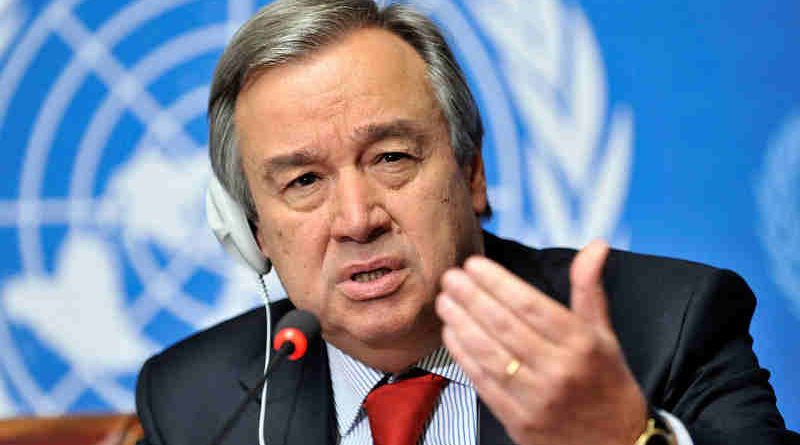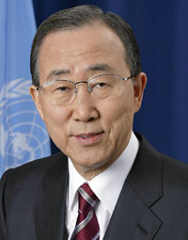Climate Change Is the Greatest Threat to Humankind: UN Chief

United Nations Secretary-General António Guterres said Thursday if accelerated action is not taken by 2020, the Paris goal on environment protection may become unattainable.
The Paris Agreement on climate change, adopted by world leaders in December 2015, aims to keep global temperature rise to well below 2 degrees Celsius and pursues efforts to limit the temperature increase even further, to 1.5 degrees.
“I am beginning to wonder how many more alarm bells must go off before the world rises to the challenge,” Mr. Guterres said, adding that 2017 had been filled with climate chaos and 2018 has already brought more of the same.
“Climate change is still moving much faster than we are,” he warned, calling the phenomenon the greatest threat facing humankind.
What Is Climate Change?
Climate Change refers to the change in the distribution of weather patterns over a period of time – usually measured over decades to thousands of years. Climate Change is caused by natural factors as well as human activities.
Natural factors such as variations in solar radiation received by Earth, plate tectonics, and volcanic eruptions contribute to the change in global weather conditions. The human activities that cause Climate Change are referred to as ‘global warming’. In the modern environment science, the term ‘global warming’ is interchangeably used with Climate Change.
The main cause of global warming or the human-led Climate Change is environmental pollution which contaminates the atmosphere with pollutants such as chemicals and energies. Pollution, therefore, has become a major factor that is causing ‘global warming’ or Climate Change.
[ Join the Green Group of Dwarka ]
As compared to the perils of environmental pollution that affect human health, the Climate Change brings mass destruction with floods, droughts, hurricanes, tornadoes, volcanic eruptions, earthquakes, and tsunamis.
Climate Change, which is an emerging subject in the global debate on environment, has assumed greater significance after 2016 Paris Agreement on Climate Change or Paris Climate Agreement.
It is an agreement within the United Nations Framework Convention on Climate Change (UNFCCC) that aims to deal with greenhouse gas emissions mitigation and overall environment protection, starting in the year 2020. As of August 2017, 195 UNFCCC members have signed the Agreement and out of them 160 have ratified it.
By Rakesh Raman
Recent information from the World Meteorological Organization (WMO), the World Bank and the International Energy Agency shows the relentless pace of climate change.
For instance, the UN chief said, energy-related carbon dioxide emissions rose 1.4 per cent, to a historic high of 32.5 gigatonnes.
Moreover, weather-related disasters caused some $320 billion in economic damage, making 2017 the costliest year ever for such losses.
In social as well as economic terms, the 2017 Atlantic hurricane season was devastating, washing away decades of development in an instant. In South Asia, major monsoon floods affected 41 million people. In Africa, severe drought drove nearly 900,000 people from their homes.
Wildfires caused destruction across the world. Arctic sea ice cover in winter is at its lowest level, and the oceans are warmer and more acidic than at any time in recorded history.
“This tsunami of data should create a storm of concern,” Mr. Guterres said, noting that next year he will convene a climate summit in New York aimed at boosting global ambition to meet the level of the climate challenge.
“The Stone Age did not end because the world ran out of stones. It ended because there were better alternatives. The same applies today to fossil fuels,” he said, stressing the need for a further cut in greenhouse gas emissions of at least 25 per cent by 2020.






